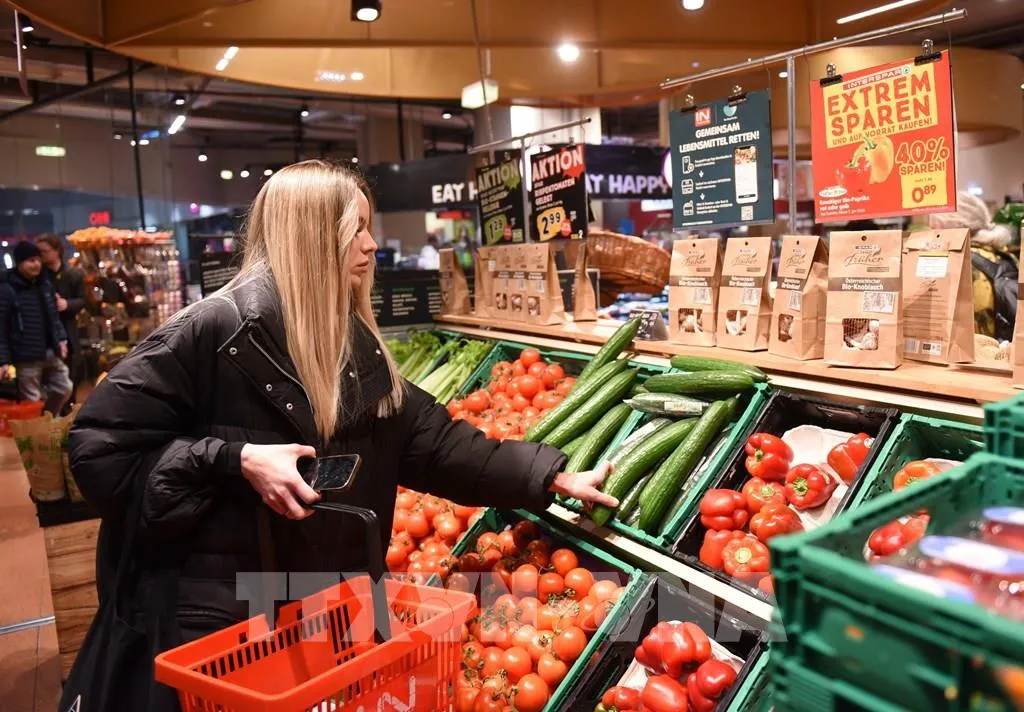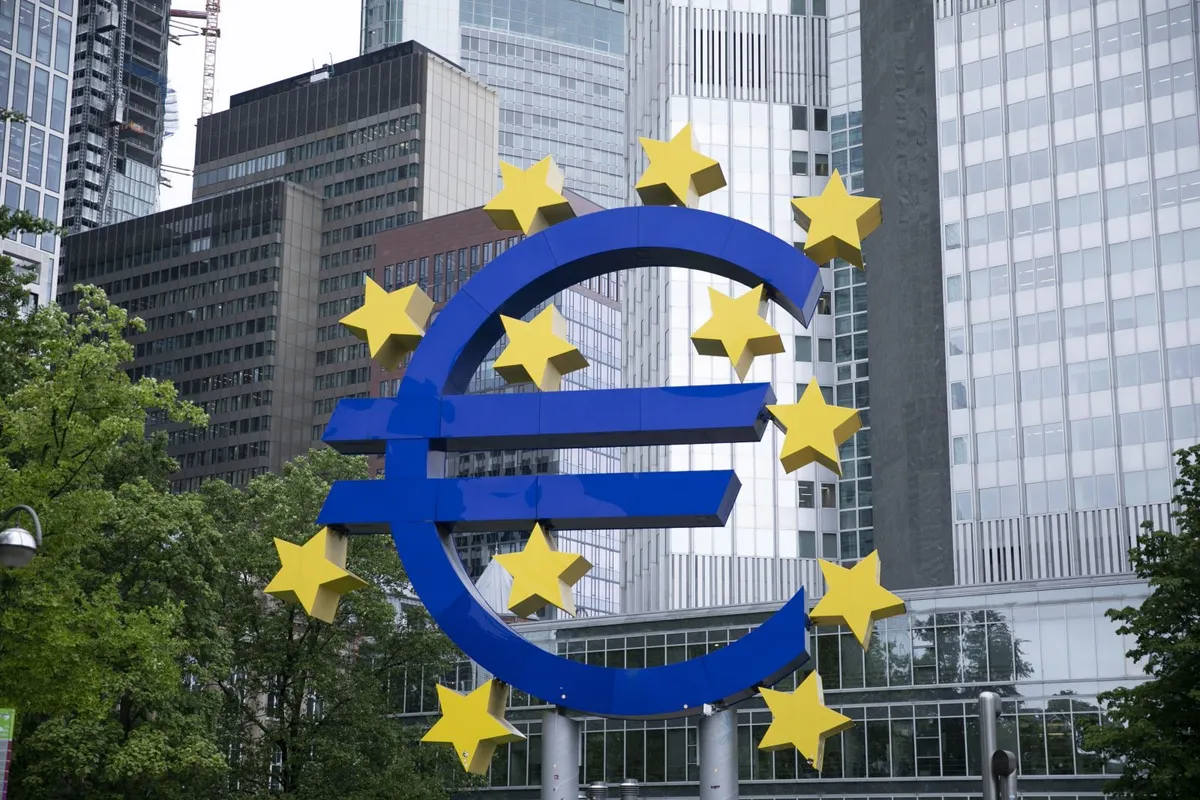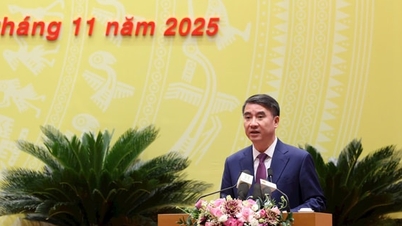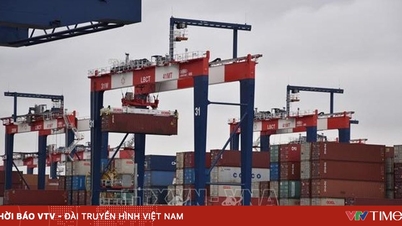Eurozone inflation situation heats up again in September
After a long cooling period this year, inflation returned to the forefront of Europe in September. Both the eurozone and the UK recorded higher-than-expected price data, raising fresh concerns about the inflationary spiral that has plagued the continent for the past three years.
According to the European statistics agency Eurostat, the consumer price index (CPI) in the Eurozone rose 2.2% year-on-year, the first time in five consecutive months that it has been at or below the 2% target. Core inflation also remained unchanged at 2.3%, although still in line with Reuters' forecast, with the increase mainly coming from the consumer services group.
Meanwhile, the UK price situation is even hotter, with average retail prices rising 1.4% in September, the highest figure since early last year. Overall inflation in the UK has also been heating up again in recent months, with September data likely to hit a peak of 4%, according to the Bank of England (BOE) forecast in the middle of last month.

People shop at a supermarket in Vienna, Austria. Photo: THX/TTXVN
European economy faces "headwinds"
While the September inflation index shows that the war with inflation across the eurozone has not yet cooled down, problems in individual EU member states are also creating "headwinds" - threatening the economic growth of individual countries from France, Germany, to Spain.
In recent days, thousands of workers in France have taken to the streets to march in Bordeaux - to protest against public spending cuts and austerity measures.
Ms. Sofie Binet - General Secretary of the CGT union, France shared: "What we want is to increase wages and pensions, cancel the pension reform, and have measures to re-industrialize the country".
France currently faces huge debt servicing costs – some estimates put interest payments this year at around €67 billion – which eats into the national budget to the point that it is the second-largest expenditure after ministries, compared to the operating budget.
Mr. Robert Halver - Head of Capital Market Analysis, Baader Bank (Germany) said: "France is facing a structural problem. People do not want to save - they are not used to austerity lifestyle. When the country needs to tighten spending, there will be a reaction. But without reform, everything will go nowhere and growth will continue to decline. New debt cannot compensate for that. More dangerously, if France continues to borrow, this effect can spread to Germany."
Public debt is something Germany needs to avoid at the moment. When the economic locomotive of Europe recorded inflation in September at 2.4% - the highest since February - exceeding the forecast of many economists. The German business confidence index also fell in September, despite the government's stimulus package and investment.
"What is particularly noteworthy this time is that the service sector - which has been stable for many years - is now witnessing a sharp decline. The main cause is the decline in industrial-related services, such as transport and logistics, reflecting the "loss of breath" of the industrial sector. Industrial enterprises report that production continues to decline, necessary orders are not coming in. It is the decline in industrial exports that is leaving the most obvious mark at this time," said Mr. Clemens Fuest - President of the IFO Institute.
In addition to France and Germany, Spain is also burdened with public debt, currently at 103.4% of GDP - continuing to increase compared to the same period last year. On the EU level, another "headwind" that the bloc is facing is the tariffs imposed by the US on goods exported from Europe - the base rate is currently 15%. This is also a factor that threatens growth in the final months of the year.

Euro symbol in Frankfurt, Germany. Photo: THX/TTXVN
Record number of workers in UK looking for extra work
Not part of the EU but the second largest economy on the continent - the United Kingdom, the Bank of England also said last week that inflation here is tending to become more persistent than ever.
Notably, according to the ONS, an estimated 1.35 million people are working two jobs to make ends meet - a 20-year high in the UK. This figure partly shows the struggle of British workers with the increasing cost of living.
Teaching Bulgarian is Rayna’s side job on the weekends. She has to spend an average of 10 hours every Saturday and Sunday preparing lessons and teaching. Her main job as a lawyer is just enough to cover the basic living expenses in London.
Ms. Rayna Raykova - Lawyer shared: "Working extra helps me buy things that I normally don't dare to buy like clothes, eat out, travel . That extra income is really significant, even though we often have to miss precious time with our family."
Rayna isn’t the only one who feels insecure about her wallet if she has only one job. According to a survey by the research organization Work Foundation, 4 in 10 people say they don’t have enough income to save or take a vacation.
Recycling worker Tony Oprah said: "I am taking extra classes so I can get another job because one job is not enough to live in the UK, especially London."
“This means that people are struggling to make ends meet and need to take on a second job. This is extremely worrying for workers’ health as they often have to arrange extra shifts just to pay rent and bills on time,” said Aman Navani, Policy Researcher, Work Foundation.
The UK government has launched an ambitious plan called "Make Work Pay". Over the past year, the national minimum wage has also increased by a strong 6%.
"That's an average of £1,400 a year. That's a lot of money, and it could make a huge difference to how much you, your colleagues, and your customers will get paid," said British Prime Minister Keir Starmer.
However, many welfare reforms will take years to come into effect, and the UK is forecast to face inflation of 3.5% this year – the highest among the G7 industrialised nations.
Forecast of year-end monetary policy in Europe
The European economies are facing a series of challenges in the final months of the year, both in terms of inflation and growth targets. This makes the work of central bank officials in the region even busier, and every move they make is being closely watched by investors in the market.
For the European Central Bank (ECB), the situation in recent months has been more challenging for growth, but only temporary, and inflation forecasts remain generally stable - an important factor that allows the agency to be proactive in making monetary policy adjustments.
"Higher tariffs, a stronger euro and increased global competition will weigh on growth for the rest of this year. However, the impact of these issues will gradually fade next year," said Christine Lagarde, President of the European Central Bank (ECB).
For this year, ECB policymakers still raised their growth forecast for the Eurozone to 1.2%, compared to 0.9% in the previous report. Along with the slight increase in inflation, the ECB is likely to not have another interest rate cut at the remaining two meetings this year, with the market forecasting this possibility up to 90%. Only 30% predict that the ECB will have another cut in the first half of next year.
Another major central bank in Europe, the Swiss National Bank (SNB), is also widely expected by the market to keep interest rates at 0% for the rest of this year and next year, especially as the country's economy is suffering a shock from the US's 39% reciprocal tax.
As for the Bank of England (BOE), with two more policy meetings this year in November and December, most analysts still favor another rate cut, especially after the economy slowed in the second quarter. However, the full-year growth outlook remains at 1.1%, while inflation remains high - which has led some banks to cautiously predict that the BOE will pause rate cuts for the rest of this year.
Source: https://vtv.vn/lam-phat-eurozone-tang-tro-lai-chau-au-doi-dien-nhieu-con-gio-nguoc-100251004120535503.htm
















































































































Comment (0)